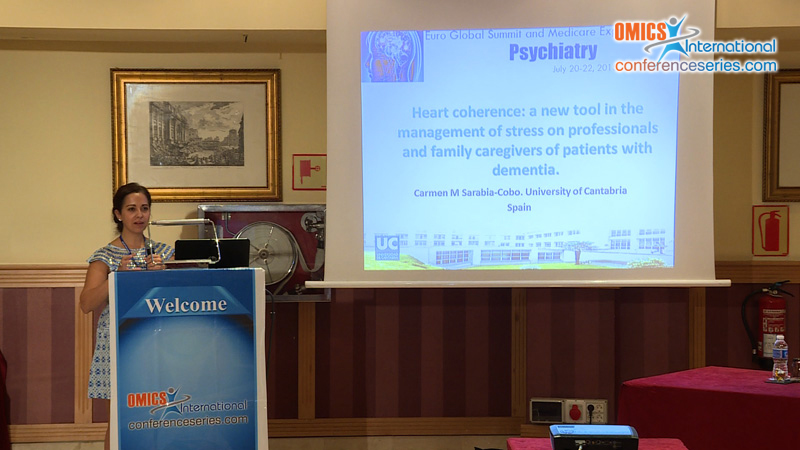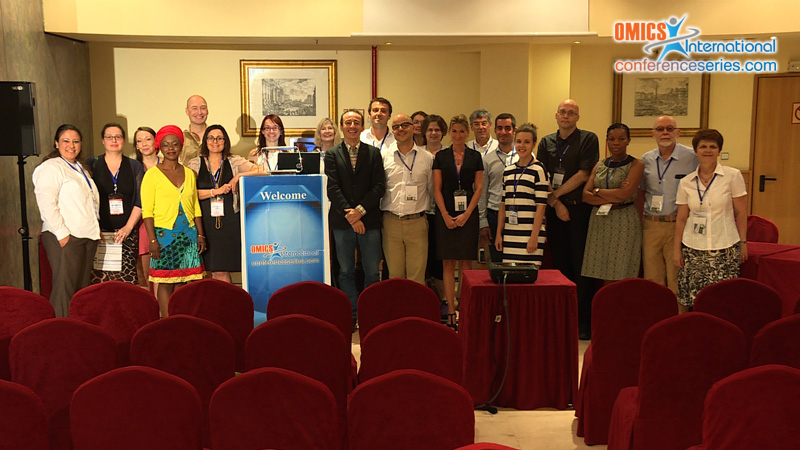
Carmen M Sarabia Cobo
Professor, University of Cantabria, Spain
Title: Heart coherence: a new tool in the management of stress on professionals and family caregivers of patients with dementia
Biography
Biography: Carmen M Sarabia Cobo
Abstract
We describe a stress management intervention intended to reduce the damage and stress impact on the heart physiology and function of a group of caregivers (professional and non-professional) who work with patients with dementia. The intervention consisted in applying heart coherence techniques in a population of 72 caregivers of patients with dementia (42 professional and 29 non-professional caregivers) who had high scores in heart stress and burden tests. Six months after the training they were able to generate appropriate patterns of heart coherence, with a statistically significant decrease in their heart overload. We conclude that training in techniques of heart coherence and positive psychology had effective results on the stress management of the participant caregivers. This was a simple, inexpensive technique with lasting results. To our knowledge this is the first research in Spain studying the application of heart coherence techniques to caregivers of people with dementia. Caregivers of patients with dementia In recent years, an increasing number of studies in stress have been focused on professionals (Knudsen, Ducharme & Roman, 2009). Affected professionals speak of burnout to define a state of emotional and physical exhaustion caused by the stressful demands of their daily work. The equivalent concept in caregivers is the Caregiver Burden (identified by the nursing diagnosis of “Fatigue in the caregiver role”). The study of these two conditions has been developed in areas of high demand for services such as care for people with dementia (Judkins, 2003). As dementia is a progressive, disabling and long-term neurodegenerative disease, the risks of being exposed to chronic stress situations both professional and caregivers is very high (Scott, Hwang & Rogers, 2006; Salmond & Ropis, 2005). Many studies show the consequences of professional stress, both emotional and physical (Chandola, Britton, Brunner, Hemingway, Malik, Kumari et al., 2008), which can cause communication problems in the team and families (Mikels et al., 2008), and affect the general welfare of the person (Salmond & Ropis, 2005). Adopting effective techniques of stress management may require improving the emotional and physical state of the caregiver, and promoting a better working environment and a better relationship with others in both the institutional and home and family environments (Salmond & Ropis, 2005). Improving the ability of caregivers to effectively meet the challenges of the daily work is valuable not only for institutions (having less stressed and healthier workers) but also for people receiving care (Pipe & Bortz, 2009). This is why in recent years, the management of burnout and overload situations has been addressed in areas such as Positive Psychology (Seligman, & Csikszentmihalyi, 2000), which studies resilience and optimism as predictors of effective coping in difficult and demanding situations. In this context, resilience refers to the ability to adapt to changing situations, being able to effectively handle stress or potential stressors in the process (Tugade, Fredrickson & Barrett, 2004). Positive Psychology studies have begun to confirm that chronic stress or certain stressful situations lead to negative emotional states (anxiety, frustration, anger, sadness, etc.), which not only affect caregivers and other professionals themselves, but also have an impact in their performance at work. This suggests that emotional and mental factors play a key role in situations of stress, and maintains that the dimensions of resilience must begin to be taken into account in the study of these groups, as evidenced by recent investigations (Otake, Shimai, Tanaka †Matsumi, Otsui & Fredrickson, 2006).
Speaker Presentations
Speaker PDFs
Speaker PPTs Click Here


